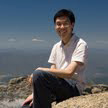
Edward Shin
I really enjoyed chatting to all you students (and other scientists). Students, keep asking 'why' and 'how': the scientific way of thinking is not just for scientists!
Favourite Thing: Gazing at pretty astronomy pictures and being amazed at how much we know about the universe and how much we still don’t know
My CV
School:
Melbourne Grammar School (1994-1999)
University:
Mathematics and Physics (2000-2002, Melbourne); Physics and Astronomy (2003-2007, Cambridge)
Work History:
Victorian Department of Transport and Victorian Department of Education
Employer:
Victorian Department of Business and Innovation (2010-)
Current Job:
I work on government programmes to help science and technology businesses. Translating between government-speak, science-speak, and normal English is great fun!
Me and my work
I work for the Victorian Government to help people develop “real, everyday uses” for scientific discoveries. BUT when I was an astronomer… (click ‘read more’ for PRETTY PICTURES!)
I now work in an area called Science and Technology Programs — and that is exactly what we do. We run government programmes to support scientific research (mostly medical research), technology-related companies, and the making of practical, “real” products based on scientific research (such as a new drug or a radar system for cars). A lot of what we do is handing out money to universities and companies with which to do “good stuff” — but that is harder than it sounds!
But until a couple of years ago I used to do research in astronomy. I worked on something called “gravitational lensing”. Light normally travels in straight lines, but gets bent by gravity. This allows astronomers to work out all sorts of interesting things about galaxies (and about strange stuff called dark matter) by looking at how light from far-away galaxies gets bent.
Here is a picture to explain what gravitational lensing is. This is a pretty building:
.jpg)
If you were to put a very heavy tennis ball (as heavy as Saturn) in front of the building, you would see this:
.jpg)
Now, of course that isn’t a real-life example. But the effect is real: here’s a real picture of gravitational lensing:
.jpg)
(a bigger version is on-line here: http://apod.nasa.gov/apod/image/0301/abell1689_hstacs_full.jpg)
When you look at this picture, you see some thin circular arcs going around the centre. Each one of those thin lines is actually a galaxy that is actually pretty much round, but appears like a thin line because gravity has played with the light.
My Typical Day
Mostly “in the office”, but sometimes I get to go out to visit researchers and companies. And when I was an astronomer… (click ‘read more’ for pictures)
I spend a lot of time writing, giving formal advice to ministers and senior public servants. I also have to check up on people (nicely!) to whom the Government has given grants (money) to run programmes, making sure that they are doing what they are supposed to be doing with the grant. Best of all, I send a roundup of science and technology news to my colleagues each day, which means I get to read about all the latest interesting science news during work time instead of my own time.
When I was an astronomer, however, I’d spend a lot of time dealing with mathematical mumbo-jumbo like this:
.jpg)
but also prettier diagrams like this:
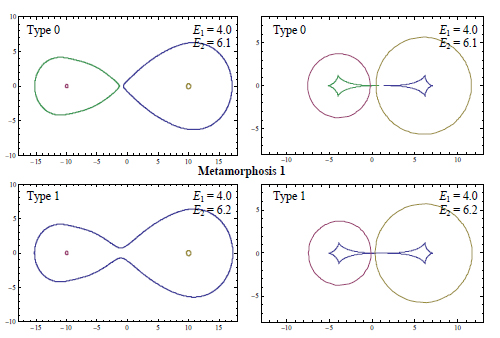
What I'd do with the money
Government rules :-( mean I would have to give it to one of the other scientists to spend on their science education project.
As I work for the government, it would be a bit tricky for me to accept the prize money to use for my own “pet project”, even if that project is for “a good cause”. 🙁
What I can do, however, is to give the money to one of the other Food Zone scientists so that they can do some of the wonderful things that they’ve suggested. 🙂
My Interview
How would you describe yourself in 3 words?
Curious | Quiet | Enthusiastic
Who is your favourite singer or band?
A toss-up between Kenneth McKellar and Dietrich Fischer-Dieskau
What is the most fun thing you've done?
Debating at school. I’ve had great fun with light-hearted topics (such as ‘That bigger is better’) as well as serious issues that were still directly relevant to school students (such as ‘That school uniform should be abolished’).
If you had 3 wishes for yourself what would they be? - be honest!
1. Learn to Apparate (Harry Potter style) so that I could visit family abroad more often and avoid peak-hour trains; 2. Not have to pay bills for about six years so that I could go back to university to study history and economic geography; 3. Learn to like prawns so that I could eat more than half the dishes at yum cha lunches.
What did you want to be after you left school?
A theoretical particle physicist
Were you ever in trouble in at school?
Yes. But it wasn’t REALLY my fault…
What's the best thing you've done as a scientist?
Explaining to students, friends, and colleagues, why all school students should learn about quadratic equations, with the help of a 2003 speech given in the British Parliament.
Tell us a joke.
A red sticker on the back windscreen of a car reads, ‘If this sticker appears blue, you’re driving too fast.’
My profile link:
https://foodj11.imascientist.org.au/profile/edwardshin/
 Print this profile
Print this profile



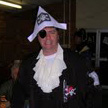
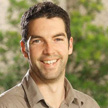
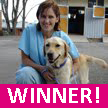
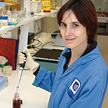

.jpg)
.jpg)
.jpg)
.jpg)

 Print this profile
Print this profile